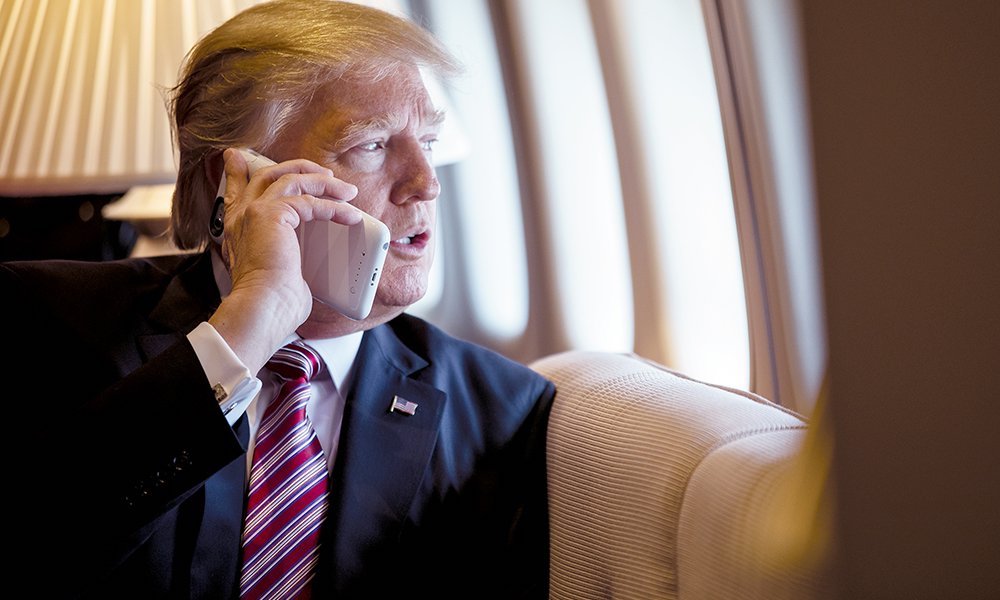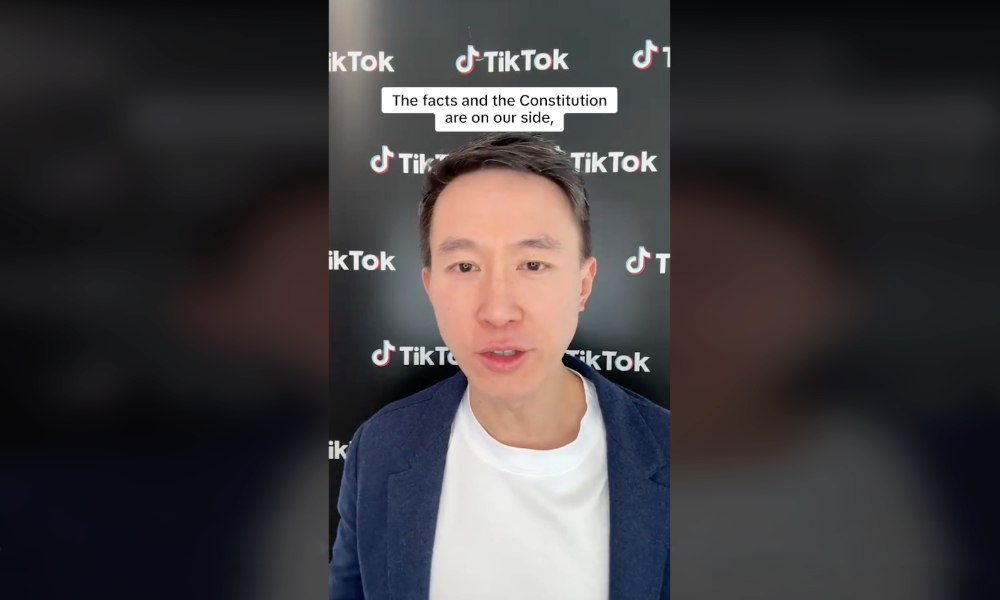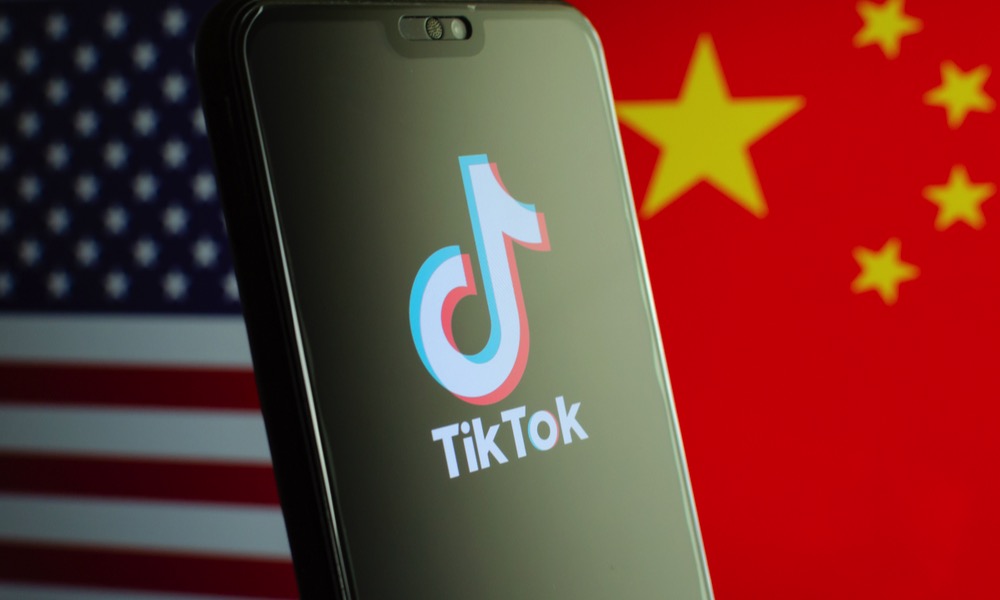Trump Asks the Supreme Court for a TikTok Extension
 Credit: The White House
Credit: The White House
Toggle Dark Mode
As things presently stand, the popular social media app TikTok is set to be banned in the United States on January 19. However, President-elect Donald Trump is asking the Supreme Court to intervene and delay the ban until he takes office.
The order to ban TikTok comes as a result of the Protecting Americans From Foreign Adversary Controlled Applications Act, which passed under the Biden administration earlier this year. The bill had widespread bipartisan support, with house representatives and senators on both sides of the aisle arguing that a Chinese-owned social media service shouldn’t be permitted to operate in the US.
The law didn’t explicitly order a ban on TikTok, per se; it simply mandated that it wouldn’t be permitted to operate in the US as long as it was owned by a Chinese company — in this case, ByteDance. The original bill gave ByteDance and TikTok five months to part ways by divesting the social media service to a less adversarial company — preferably a US-based one; this timeline was extended to nine months when the bill passed through the Senate.
This set the deadline at January 19, a date that seems a bit too precise to be coincidental since it’s the day before the inauguration of a new administration. Of course, nobody knew back then who would be taking office on January 20. Still, it’s unfortunate timing as it potentially ties the hands of the incoming President, who has promised to “save TikTok.”
The legislation authorized the President to extend the divestment period by three months if needed to make a deal. Still, technically, one can’t “extend” something that’s already ended — and that period would end a day before President-elect Trump takes office on January 20.
For its part, TikTok has been actively fighting the new law, but without much success. Earlier this month, the US Court of Appeals for the District of Columbia Circuit upheld the ban, leaving the clock ticking toward January 19. TikTok appealed the decision to the US Supreme Court — and the highest court has agreed to hear it.

In the appeal, TikTok primarily asked for “a modest delay” to “create breathing room” for the matter to be properly evaluated by the Court and the new Administration. While the Supreme Court hasn’t hinted at what conclusion it will reach, it did agree to expedite the case and hear arguments on January 10, potentially giving it time to reverse or stay the ban before it comes into effect.
Now, President-elect Trump is adding his voice in support of the idea that his administration may view things differently from that of his predecessor.
In a neutral amicus curiae brief to the Supreme Court, Trump’s attorney, D. John Sauer, writes that the President-elect wants time to find a political solution to the problem of TikTok to avoid a potential ban.
President Trump alone possesses the consummate dealmaking expertise, the electoral mandate, and the political will to negotiate a resolution to save the platform while addressing the national security concerns expressed by the Government—concerns which President Trump himself has acknowledged.
Brief of President Donald J. Trump as Amicus Curiae Supporting Neither Party
While Trump wants to save TikTok, it seems clear he doesn’t plan to do so by reversing the law that created the ban in the first place. Even as President, he’d be relatively powerless to take immediate action. It’s also important to keep in mind that this bill was strongly backed by some of Trump’s closest Republican allies — Marcio Rubio, Trump’s pick for Secretary of State in the new administration, vocally supported the bill as co-chair of the Senate Intelligence Committee.

President Trump strongly opposed TikTok during his first term, but that was more about his trade war with China than the social media app. He issued an executive order banning TikTok and WeChat in 2020, but that contained a very similar ultimatum — sell or be banned. TikTok and WeChat avoided the ban by securing a preliminary injunction that delayed the case until President Joe Biden took office, after which he signed another executive order to revoke the ban and ordered a new investigation into the matter — an investigation that culminated in the law passed earlier this year.
It was easier for President Biden to reverse the ban in 2021 as he was simply rescinding an executive order issued by his predecessor. Matters will be more complicated for President Trump as he’s now dealing with a law passed by Congress. Nevertheless, as long as the courts agree to an extension — which seems likely — Trump should have enough time to push for the same thing he wanted four years ago — trying to broker a deal for a US conglomerate to acquire TikTok. Even though ByteDance has threatened to shut down TikTok in the US before it sells it off, there may be room for negotiation. For example, it’s the algorithm that powered TikTok that ByteDance is most protective of, so it’s possible the President-elect could broker a deal for ByteDance to divest itself of the TikTok brand and some of the less proprietary technology without giving up any of its closely-held trade secrets.
Trump has a vested interest in allowing TikTok to continue to operate in the US, as he believes it represents a barrier to Facebook’s expansion. In an interview with CNBC in March, Trump expressed his view that Facebook is “an enemy of the people” and also posted the same on his Truth Social network, stating that “If you get rid of TikTok, Facebook and Zuckerschmuck will double their business. I don’t want Facebook, who cheated in the last Election, doing better. They are a true Enemy of the People!”
The President-elect’s amicus brief merely adds input to the case that the Supreme Court will already be hearing, and doesn’t change the timeline. Opening arguments in the case will be heard on January 10, which suggests the Court will try to come to a final decision before January 19. However, it’s certainly under no obligation to do so.







